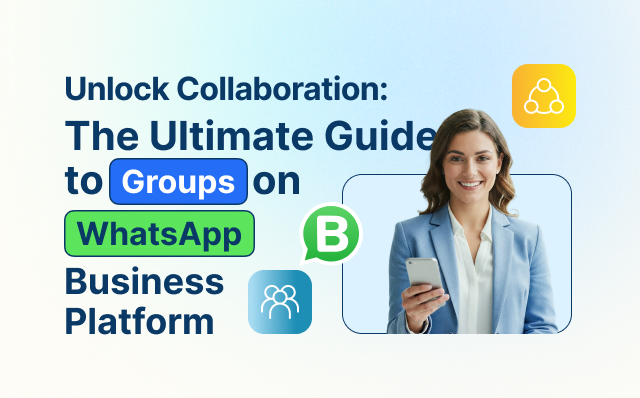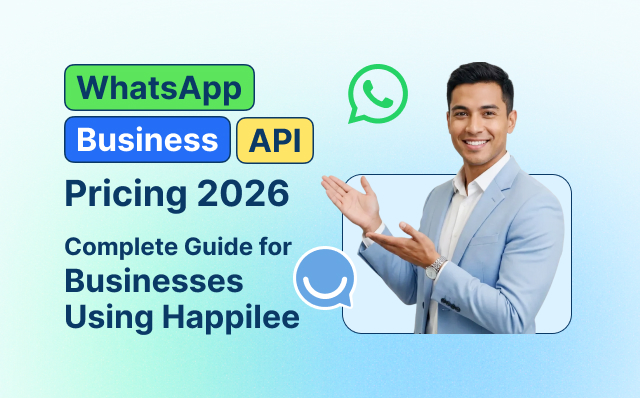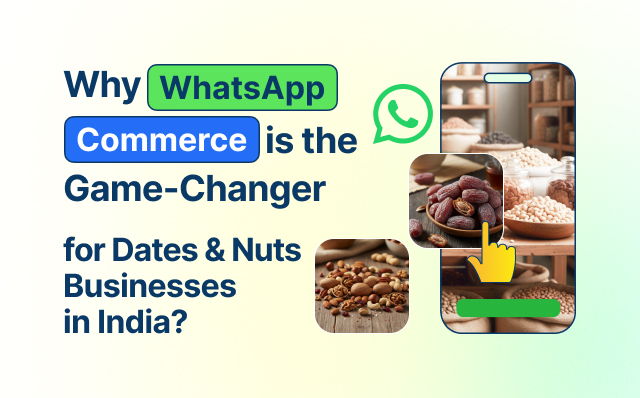The WhatsApp Business Platform has become the go-to communication channel for brands worldwide. With billions of users and seamless integration features, WhatsApp continues to empower businesses to connect, communicate, and convert faster. In October 2025, Meta introduced a groundbreaking update — Groups on WhatsApp Business Platform — enabling brands to engage customers, experts, and AI systems in one unified conversation. This innovation is transforming how businesses collaborate internally and communicate externally, bringing context, speed, and personalization to the next level.
What Are Groups on WhatsApp Business Platform?
The Concept Behind Groups on WhatsApp Business Platform
Groups on WhatsApp Business Platform allow businesses to bring multiple team members and customers into a shared chat environment. Instead of switching between numerous one-on-one threads, everyone involved in a project, sale, or service issue can now interact within a single conversation.
This is especially useful for high-touch businesses like real estate, automotive, or retail, where decisions often involve multiple stakeholders — from sales consultants to financing agents and customers.
The Power of Shared Context
The key advantage lies in shared context. Every participant — whether a human agent, AI chatbot, or customer — can view prior messages, understand the conversation flow, and act efficiently without redundant questions.
When context is shared, collaboration improves, issues are resolved faster, and customers feel valued.
Key Features of Groups on WhatsApp Business Platform
Seamless Collaboration for Teams
Businesses can now add up to 8 participants (excluding the business account) in each group and create up to 10,000 groups per business number. This flexibility enables scaling across departments, regions, and even product lines.
Integration with AI Chatbots
AI-powered assistants can co-exist in group chats, providing real-time product recommendations, FAQs, and automated workflows while human agents handle complex queries. This hybrid approach enhances response time and customer satisfaction.
Enhanced Customer Transparency & Control
Customers maintain full control — they can view who’s in the group, read privacy details, and leave anytime. This transparency builds trust, ensuring ethical use of communication tools.
How Groups on WhatsApp Business Platform Work: Step-by-Step Process
From the Customer’s Perspective
- The customer receives a group invite link from the business.
- The invite clearly displays group details and members.
- Customers can choose to join or decline the invite.
- Once inside, they can chat, view participants, and exit whenever they wish.
From the Business’s Perspective
- The API account initiates a group by generating an invite link or QR code.
- The link is shared through a 1:1 chat.
- Customers who accept are added automatically.
- The API account manages memberships, adding or removing users as needed.
Business Benefits of Using Groups on WhatsApp Business Platform
Faster Lead Nurturing & Conversions
Sales teams, financial advisors, and product experts can all engage prospects in a single space — making it easier to handle complex or high-value purchases like homes or cars.
Improved Customer Service & Retention
When customers face issues, your support team, AI bot, and technical specialists can collaborate in real-time. This not only improves efficiency but also creates a sense of reliability and transparency.
Simplified Communication Flow
No more long email threads or disconnected chats. With WhatsApp Groups, communication is centralized and continuous, ensuring everyone stays informed.
Pricing & Message Delivery Model
How Per-Message Pricing Works
Groups follow a per-message pricing model — you’re billed for every message delivered to a group participant.
For example, sending one marketing message to five customers results in five individual billable deliveries.
Managing Costs Effectively
Businesses can manage message costs by segmenting audiences, scheduling updates strategically, and using automation to deliver value without over-communication.
To scale your outreach while maintaining cost-efficiency, learn how to send bulk WhatsApp messages with Happilee — a simple way to engage thousands of customers instantly through the WhatsApp Business Platform.
👉 Learn more about WhatsApp group pricing here
Top Use Cases for WhatsApp Business Groups
High-Consideration Sales (Real Estate, Auto)
- Real estate agents and financiers collaborate on property discussions.
- Car dealers and loan officers engage families making purchase decisions.
AI-Powered Support & Consultation
- Retailers use AI bots to provide catalog info.
- Financial institutions automate investment queries.
Lead Nurturing & Follow-Ups
- Gyms add trainers and managers to guide new members.
- Local stores follow up on purchases and promotions.
Small Community Management
- Tutors create virtual classrooms.
- Beauty brands host interactive group tutorials.
Case Study: How a Global Automobile Brand Boosted Sales Using Groups
A leading automobile brand implemented Groups on WhatsApp Business Platform to connect local dealerships, customers, and financing partners.
By creating groups after initial customer inquiries, the brand:
- Reduced decision-making time by 40%.
- Enabled partners/spouses to collaborate on purchases.
- Provided 360° product and financing info instantly.
The result? Faster conversions and happier customers.
Setting Up WhatsApp Groups for Your Business
Step 1: Generate Group Invite Link
Only the API account can initiate a group conversation using a generated link.
Step 2: Send Invite via 1:1 Chat or QR Code
The invite can be sent directly or embedded in campaigns and QR-based touchpoints.
Step 3: Add Team Members & Automations
Once customers join, add your internal team and integrate your AI chatbot for seamless automation.
Best Practices for Using Groups on WhatsApp Business Platform
Data Privacy and User Consent
Always provide clear privacy disclosures and allow customers to exit freely.
Maintaining Message Relevance
Avoid over-communicating. Keep messages purposeful and aligned with customer interests.
Balancing AI and Human Interaction
Leverage AI for speed but ensure human empathy remains central to conversations.
The Role of AI in Groups on WhatsApp Business Platform
AI chatbots within groups automate repetitive tasks — from sending updates to analyzing customer sentiment. The integration allows human-AI collaboration, providing consistent service even outside business hours.
Future of Groups on WhatsApp Business Platform
As WhatsApp continues to evolve, expect deeper CRM integrations, analytics dashboards, and expanded participant limits.
Businesses that adopt early will gain a competitive edge in customer experience and automation.
FAQs
1. What is the maximum number of participants allowed in a WhatsApp Business group?
Up to 8 participants (excluding the business account).
2. Can customers leave the group anytime?
Yes, customers can exit anytime, maintaining full control over participation.
3. Are messages in groups encrypted?
Yes, all communications follow WhatsApp’s end-to-end encryption standards.
4. How are group messages billed?
Each delivered message counts as one billable unit, charged per recipient.
5. Can AI chatbots be part of the group?
Yes. Businesses can add AI assistants alongside human agents.
6. Is there a limit to the number of groups a business can create?
Each business number can create up to 10,000 groups.
Conclusion
The Groups on WhatsApp Business Platform mark a significant step forward in conversational commerce and service collaboration.
Whether you’re in retail, automotive, or finance, these groups empower your brand to connect faster, serve better, and sell smarter — all while maintaining a human touch.
Ready to unlock the potential of WhatsApp Groups?
Start by integrating them into your CRM and watch your customer engagement soar with Happilee — your trusted WhatsApp Business API partner.


